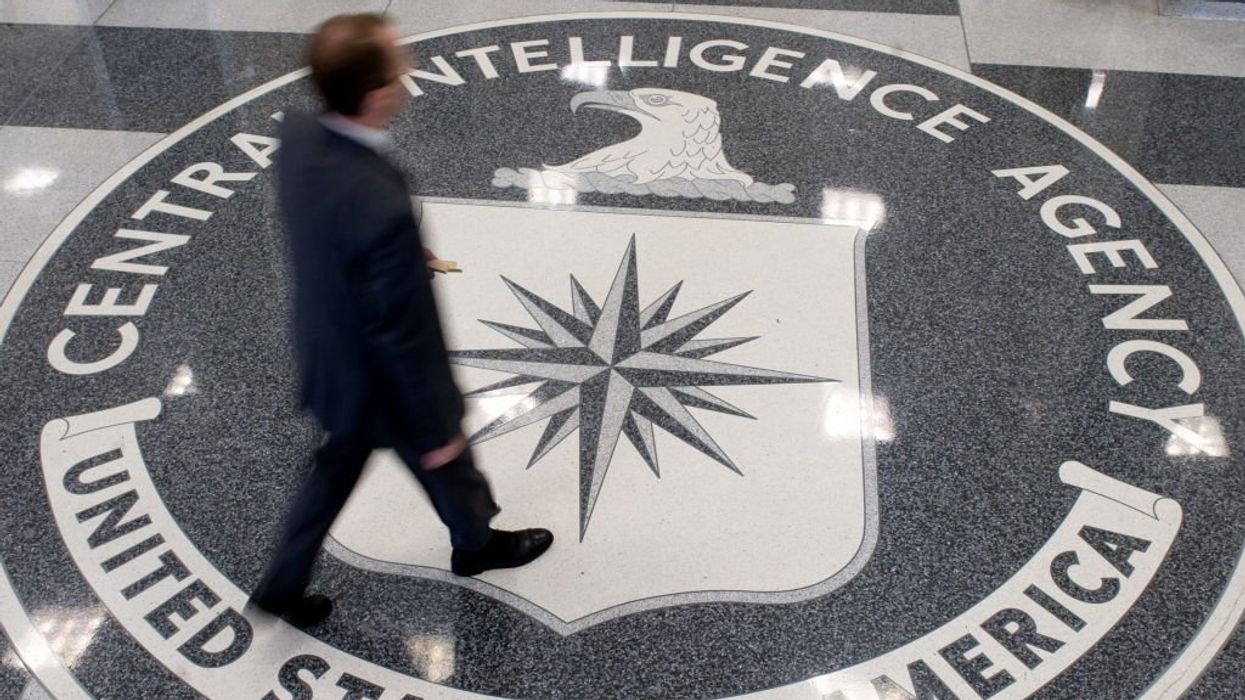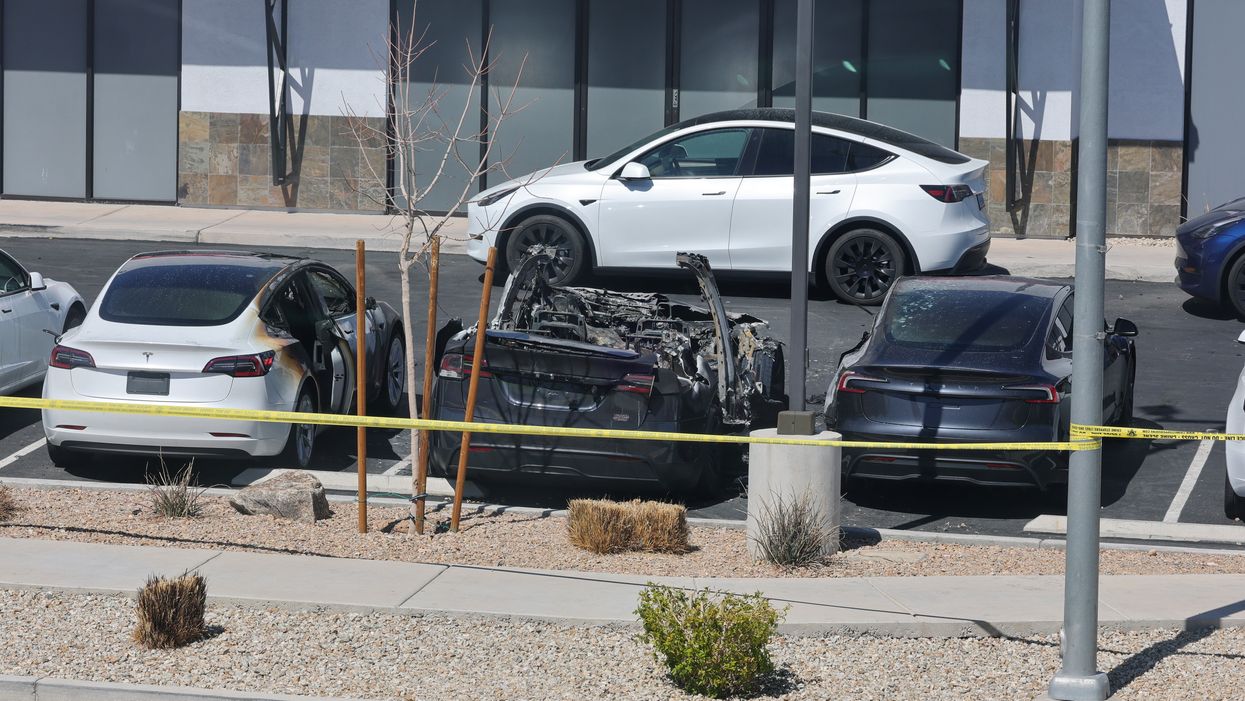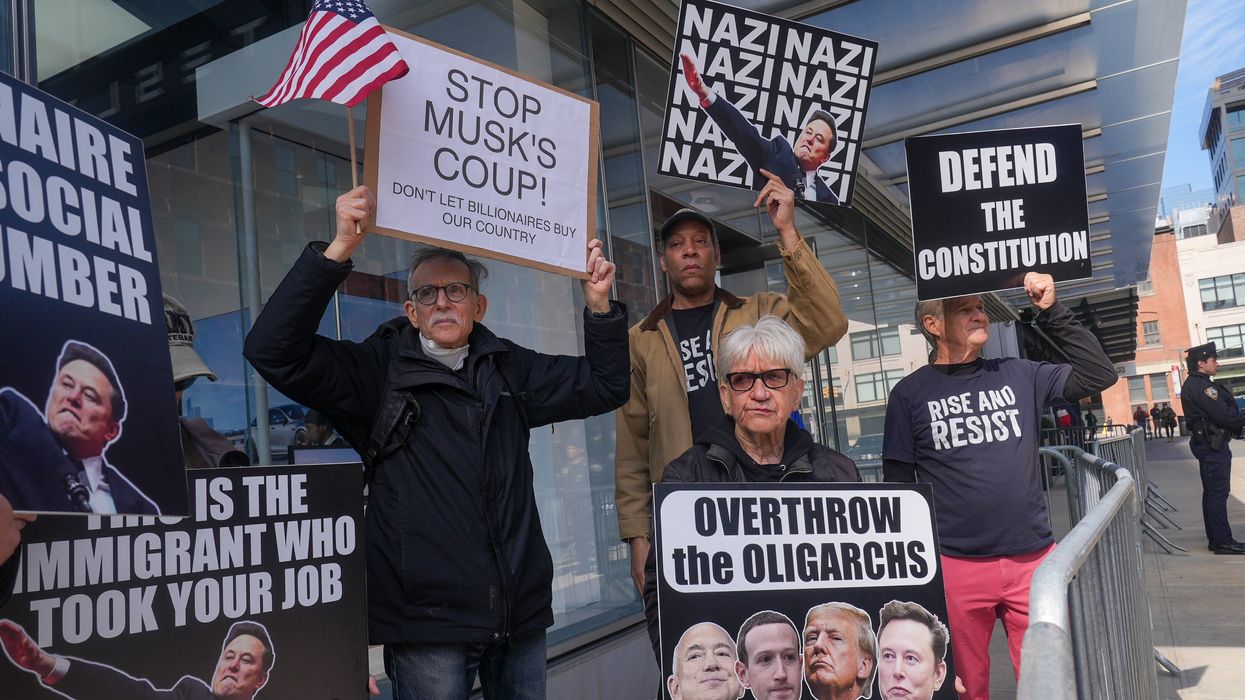Senator Rand Paul (R-KY) joined the radio program this morning to speak about his book, Government Bullies: How Everyday Americans are Being Harassed, Abused, and Imprisoned by the Feds, the current terror threat, and what will be on the agenda in Washington D.C. following the Congressional recess.
Transcript of the full interview below:
GLENN: [Rand Paul] doesn't want to shut down the government. He just wants to defund a wildly already out‑of‑control government program – the universal healthcare program of the president. And I think this is our ‑‑ this is our last chance. This is our last chance. He has a book that's come out in paperback: "Government Bullies: How Everyday Americans are Being Harassed, Abused, and Imprisoned by the Feds." It's stunning, stunning excoriation of what our country has become. And he is on the phone with us now. Senator, how are you, sir?
RAND PAUL: Good. Glad to be with you, Glenn.
GLENN: So... Chris Christie ‑‑
RAND PAUL: Oh, don't get me started, Glenn.
GLENN: ‑‑ has said, and he's not alone ‑‑
STU: (Laughing.)
GLENN: ‑‑ that there's a rising strain of libertarianism and that you are dangerous.
RAND PAUL: Now, you've seen me, Glenn. I'm not that dangerous. I'm not even scary.
GLENN: You're really not.
RAND PAUL: But the thing is that ‑‑ here's the real problem with their analysis is that I believe the most important thing we do at the federal government level, the thing that is absolutely authorized by the Constitution is national defense. And that it takes a priority over really just about everything we do up there. So I would, if I were in charge, do everything possible to find savings in order to preserve national defense. However, if you're a liberal Republican and you think you want all of the pork everywhere that all the Democrats want and you want national defense, it's a little bit hard to argue because there's no money left over for national defense unless you're willing to cut somewhere.
GLENN: I was shocked in two things, first of all, that Newt Gingrich over the weekend was as honest as he was. He claimed that he was a neocon, and anybody ‑‑ and Newt is enough of a wordsmith to know exactly the origins of that word. That means somebody who is a big government progressive liberal that also believes in huge national defense and spreading democracy by force. And that's what the definition of a neocon is. And he said, "I am a neocon, but I've ‑‑ I've started to reconsider. Maybe, maybe some of our national defense stuff is misguided here."
RAND PAUL: Well, see, I think part of the problem is we characterize things too absolutely. I always tell people that are there polls. One is that we're everywhere all the time and one is that we're nowhere any of the time. That would be isolationism. I'm not for nowhere any of the time. I'm for defending the country, protecting the country from attackers. I was for going into Afghanistan. I'm for having robust presence around the world, but I'm not for being in every Civil War. I'm not for arming the Islamic rebels in Syria who are going to be killing and are killing Christians. And so there are debates, but what happens is the other side wants to characterize one side as not believing and defending the country and that's just not accurate.
GLENN: So the ‑‑ we've had prison break after prison break. You know, if you look at Al‑Qaeda and the Muslim Brotherhood as two rival gangs, which they are. They're the Crips and the Bloods except they're even worse than the Crips and the Bloods obviously, and we have ‑‑ we're not anti‑ ‑‑ we're not anti‑gang. We just picked the Bloods. We just don't like the Crips much and so we've gone after Al‑Qaeda but we've embraced the Muslim Brotherhood. The Muslim Brotherhood is crumbling in the Middle East and in Egypt and now Al‑Qaeda is releasing prisoners by opening up all of the prisons across the Middle East and now we've taken this unprecedented act of shutting down our embassies all across the region. Rand, are we ‑‑ I mean, I've never seen America do this. Al‑Qaeda's not on the run. We're on the run.
RAND PAUL: Well, you know, I still have questions about whether we're adequately protecting our embassies, and I think it really was inexcusable in Benghazi that when Hillary Clinton was asked for more security, she turned them down and then had the gall to say, "Oh, really wasn't my problem. Somebody underneath me made that decision." And I really think that that kind of behavior's inexcusable. And still to this day, you know, they're talking this morning all over the news about how Benghazi's ten times more dangerous than it was. I think the whole country, I think the host country, there may be people there who are willing to protect our embassy but I don't think they have the capability. So I don't think we really should have an embassy there under State Department control. It actually ought to be under military control the way initially things were in Afghanistan and in Iraq, or we shouldn't have an embassy in Libya at all. But you do have to protect your embassies, and shutting them down is not an ultimate answer. I don't want to second‑guess the decision yesterday, reliable information, but I do say we have to have more protection for our embassies.
GLENN: I don't want to put you in a situation to where you're speculating on, you know, whether this is genuine, whether this is just another, you know, this is scare tactic to get everybody talking ‑‑ not talking about Benghazi, which we were again last week or supporting the NSA or anything like that. What I want to ‑‑ what I just want to ask you is how should the American people digest what's going on with this giant terror scare?
RAND PAUL: You know, I think that you can have both security and privacy and obey the Bill of Rights. They make it out like, "Oh, we need these short steps, we don't need warrants, we need to be able to get all of this information from Americans and store it out in Utah," but the thing is almost really every case that they've said, oh, was stopped by using this surveillance, it really isn't exactly true. Every name of every person that they started their investigation with all came from an informant and came with an actual name. They are just using, enable to use this data to find terrorists. They are working from information they get from informants and then they could do it the traditional way and just ask for judges' warrants for their phone records and whoever they link to and we would be able to get terrorists and still would even without, you know, disobeying the Fourth Amendment and invading all Americans' privacy.
GLENN: I have respect for Michele Bachmann, but we have respectfully parted ways on the NSA thing. She is convinced that the NSA has never done anything wrong and, you know, got to work with the evidence at hand, et cetera, et cetera. I don't know why you are building the biggest data collection center the world has ever seen if you're not actually going to store any of that data, but what is your reaction to the House's failure to defund the NSA?
RAND PAUL: You know, actually I was pretty impressed with the effort because first of all, leadership on both sides of the aisle, Republicans and Democrats, didn't want to have a vote. And they forced the vote and actually almost worked to put controls on the NSA. The problem with not having any controls and expecting the NSA or policemen in general just to pass their own rules, it's sort of like the presidential problem. People who have power think that because they're good, there don't need to be limits on it. So policemen who are good people, I know policemen in my community, I know FBI agents are good people, but they don't want restrictions outside of their group because it just sort of gets in the way of doing work. But increasingly they want more and more power because they say we're good people and we're going to do good things. But then ultimately so much power accumulates that then, like, people in the IRS are able to use that power against their political enemies. Could the NSA be turned on your enemies? Absolutely.
GLENN: Congress is on break right now, but when you come back, there is a push that you're involved in to defund universal healthcare by carving it out of the next continuing resolution. Already they're calling everybody involved an extremist. I personally think that if this would work, you would not only defund the president's healthcare plan and stop it dead in its tracks, I really, truly believe you would see John McCain walk out of the GOP and say I'm going ‑‑ I'm going to do Joe Lieberman, I'm independent because this party has been taken over by extremists and that would be the biggest victory of all. How is the defunding program coming in your opinion?
RAND PAUL: Well, but for a few Republicans who have been critical of it before it got started, you know, I think it would have had more success. What I tell people is that when I come home in Kentucky, everybody's exactly the way they were in 2010. They want us to do something to defund ObamaCare. Medicare's $35 to $40 trillion in the hole, and taking money from Medicare to pay for ObamaCare just isn't going to work. And they want us to do something. We control a third of the government, which means we may not be able to win, but they want us to stand up and try. And if you control a third of the government, shouldn't you use that leverage to at least get rid of some of ObamaCare or try to get rid of some of it? You start out with defunding the whole thing but maybe we just get it delayed. I don't know what the final outcome is because I can't guarantee victory, but I can guarantee you get nothing if you don't try and that's why I think Republicans are hungry for leadership in our party to say somebody stand up to the president. Somebody stand up to ObamaCare and do something.
GLENN: I saw a story from a progressive Democrat that said after this is funded, if you guys lose this fight, and once this thing is funded and on its way, the TEA Party and small government conservatives are over. And they said that it is really one of the last stands here and it's a real fight in the ‑‑ it's just a, it's a fight against American constitutionalists and progressives on both sides.
RAND PAUL: Yeah, but I think the fight doesn't end because I've told people even if we lose this fight on funding it, there's going to be another fight within a year when all the bills come due at the state legislative level because they don't have a printing press at the state capitol and so they will have bills and they're going to be enormous for this thing. And I think also there's going to be a rebellion among the people when they see how much their premiums are and then, guess what, they had insurance before but they lose their doctor, lose their insurance and they are paying more for their premiums. They are going, now, why did I vote for the president on this?
GLENN: Do you think they're going to ‑‑ I mean, to add fuel to the fire, do you think they're going to ‑‑ there's going to be a real movement to bail out Detroit?
RAND PAUL: I think there may. And, you know, I've been talking with my staff about having a Republican alternative to it because I think there is a way in an economically depressed zone to have some tax forbearance, reduce some taxes, encourage businesses, encourage people to come in and take abandoned property.
The other thing I suggested is the money we're sending to Egypt for tanks and planes, we could put it into infrastructure. Doesn't have to go just to Detroit but it ‑‑ across America, it would go into repairing infrastructure. And so I think there are ways that we could do it in a Republican fashion, but I will not be for borrowing any money, you know, from China to try to bail out Detroit, particularly if they continue the same policies. Really bankruptcy is an opportunity to try to get rid of bad contracts, start out afresh and try to maybe pay your workers, have fewer workers but pay them closer to what the market pays them in the private sector.
GLENN: I will tell you that, you know, the boys were talking about, we could buy homes, Glenn. We could buy a home for a dollar. We could buy a whole block for 10. And they were talking about there, you know, some people are going in and, you know, buying, you know, lots of houses, et cetera, et cetera. And I said, "I wouldn't do it because I'm not convinced that I wouldn't be held responsible or liable now for all of the bad decisions that that city makes." You have to have a fresh start. If you had a fresh start, new money would pour in there and people would say, "I've got an idea. I know how we can do this. I know how we can fix this. I know how we can turn it around. But who's going to do that in ‑‑
RAND PAUL: You'd have to bring in new politics, too, that maybe the people who have been voting for the Democrats for 50 years in Detroit who ran the once great city into the ground, maybe they would choose some new leadership in the Republican Party.
GLENN: No, that's ‑‑
RAND PAUL: ‑‑ have a resurgence in Detroit and say, look, we have the ability and the ideas to bring forward a recovery for Detroit. But that may be wishful thinking.
GLENN: Yeah, I think that's ‑‑ I think that's wishful thinking. I think what is a possibility, not now, but what is a possibility is to get entrepreneurs, libertarians, smallest possible government, the kind of guys that are doing the, you know, the cutting‑edge ideas of, you know, what is that sea thing that, they have that big ship out in sea and they're like we're going to try to redesign everything? I mean, you have some real libertarian thinkers, some real big money and some entrepreneurs in there and say, "All bets are off. We want this property to try something entirely different," that I think could excite the minds and imaginations of Americans. And if you just said, "Look, I own it and that's what I'm going to do, and I'm going to take care of it and police it myself and we're going to try some new experiment," that would capture the imagination.
RAND PAUL: You've hit on it because what you have to have is not only tax‑free zones, you need to have regulation free zones. Apparently Detroit, you know, there's 46 pages of regulations for setting up a business and everywhere you go, you're paying off somebody or paying a legalized bribe to get your business license. You have to eliminate all that red tape and so it has to be a low‑tax or a tax‑free zone and a regulation‑free zone and just do it because it's blighted and see if people will come in if you tell them they can just open their business and start tomorrow.
GLENN: Well, the name of the book is Government Bullies: How everyday Americans are being harassed, abused, and imprison by the Feds. And if you ever have a friend who says, "Oh, tell me where the rights have gone away," you just give them this book. I's available now in paperback everywhere, government bullies by senator Rand Paul out today in paperback in stores everywhere. Thank you so much, Senator.
RAND PAUL: Thanks, Glenn.
GLENN: Appreciate it. Bye‑bye.






